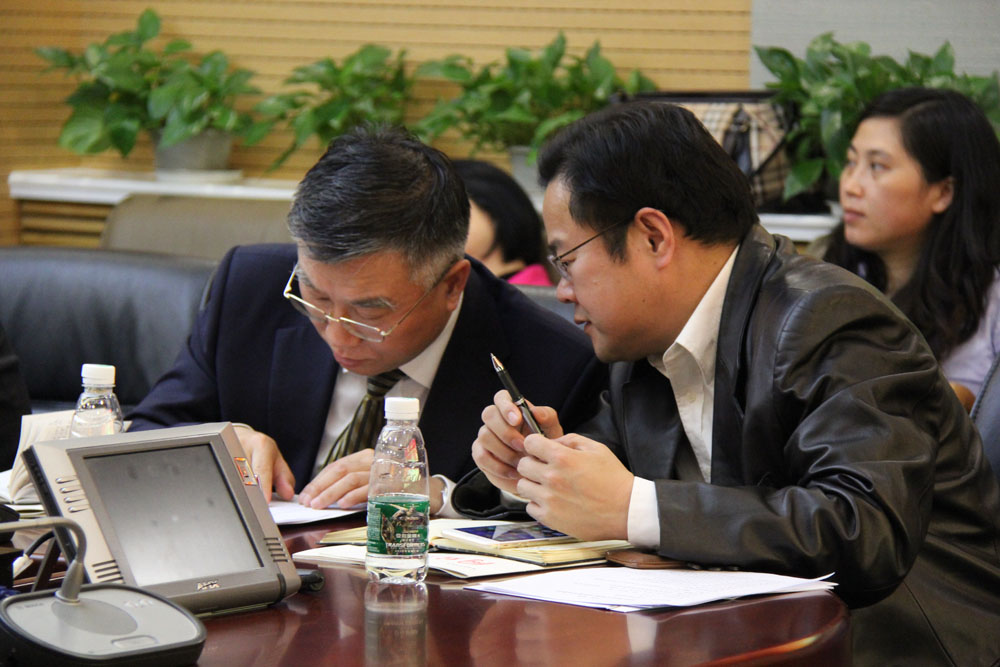[China Traditional Chinese Medicine News] Public Hospitals Returning to Public Welfare Is Not the Panacea for Medical Reform—A Discussion with Academician Zhong Nanshan
Category:
Release time:
2015-11-24
During this year's Two Sessions, Zhong Nanshan, a deputy to the National People's Congress and an academician of the Chinese Academy of Engineering, proposed that "public hospitals should return to their public welfare nature, which is the crux of medical reform." Mr. Zhong Nanshan is my teacher, and I respect him very much. Aristotle once famously said, "I love my teacher, but I love truth more." As someone who has worked in the pharmaceutical industry for over twenty years, I do not agree with Teacher Zhong Nanshan's view on medical reform.

The purpose of medical reform is to solve the problems of difficulty and high cost of medical treatment, which involves the interplay of multiple stakeholders such as patients, doctors, hospitals, and pharmaceutical companies.
For patients, seeing a doctor is about getting cured with medicine while ensuring that not too many drugs are prescribed and prices are not too high, regardless of whether it's a public or private hospital.
For doctors in public hospitals, practicing requires ensuring a reasonable and legal income while also providing good medical services. If only public welfare is emphasized, how will doctors' livelihoods be secured? Will it lead to an intensified problem of taking drug price kickbacks, ultimately harming patients?
For public hospitals, if they return to public welfare and earn little or no profit, who will support the millions of medical staff in public hospitals nationwide? If the state supports them, can the national treasury afford the burden?
For pharmaceutical companies, if public hospitals return to public welfare, will drug prices fall? The answer is no. Current drug prices are not determined by pharmaceutical companies; instead, the government sets prices through centralized drug bidding and procurement. Government pricing hinders market competition, leading to the principle of "bad money drives out good." I won't elaborate here; readers can refer to my previous related Weibo articles. Perhaps some people believe that drugs are special, closely related to human life, and their prices must be set by the state; otherwise, pharmaceutical companies would set exorbitant prices, making them unaffordable for ordinary people. This understanding is also mistaken. Essential daily necessities like rice, wheat, and cooking oil have prices almost entirely determined by market competition, yet we haven't seen their prices skyrocket. Currently, there are thousands of pharmaceutical companies and many drug research institutions in China, making it difficult for a single drug to form a monopoly. What the government needs to do regarding drugs is macro-level regulation, not forced pricing.
Therefore, public hospitals returning to public welfare is not a good prescription for medical reform. To ensure that medical reform benefits multiple stakeholders such as patients, doctors, hospitals, and pharmaceutical companies, it must follow the 'trilogy' of 'state withdrawal and private advancement,' 'liberating doctors,' and 'abolishing bidding.'
'State withdrawal and private advancement' means thoroughly reforming public hospitals, vigorously developing private medical institutions, breaking the dual high monopoly of public medical institutions over medical services and drug retail, and unleashing the vitality of medical services.
'Liberating doctors' can be advanced gradually from top to bottom, starting with tertiary hospitals, by granting all doctors the right to practice independently at once and encouraging them to do so. In the initial stage, doctors can use their own hospital as a public platform to establish personal or team clinics, with all hospitalization, examinations, and even dispensing of medicine taking place within the hospital. Doctors would focus solely on diagnosis and treatment, while the hospital platform provides all services. Doctors would sign cooperation and revenue-sharing agreements with the hospital platform. Doctors' income would primarily come from two aspects: consultation and treatment fees, and profit-sharing with the hospital platform. Evidently, highly skilled doctors would see a significant increase in income due to more patients and reasonable treatment fees; less skilled or new doctors could join teams of highly skilled doctors, taking charge independently once they mature; doctors whose skills cannot improve would be naturally eliminated. After stability is achieved, effective multi-site practice could gradually be expanded.
Abolishing bidding means abolishing the current government-led centralized drug bidding and procurement system that has been in place for over ten years, and establishing a new national drug trading platform, built by third-party organizations or the government, with government supervision, where buyers and sellers conduct equal transactions on the platform.


